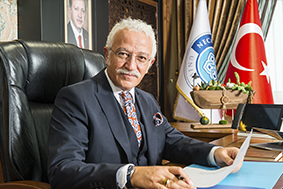1. Strategic Planning and Goal Setting
Instructional management is structured in accordance with the mission, vision and strategic goals of the university. All educational programs and academic activities are managed to support the achievement of the goals set in line with long-term planning processes. Strategic plans are regularly reviewed and updated to include innovative approaches that will improve the efficiency and quality of teaching processes.
2. Transparency and Accountability
Transparency in teaching management is essential. The University management ensures that all teaching processes and decisions are clear, understandable and accessible. The performance of academic units, student feedback and other relevant data are regularly evaluated and reported. Accountability is an important element that supports credibility and continuous improvement in instructional management.
3. Effective Resource Management
Instructional management aims to use the material, human and technological resources of the university effectively and efficiently. Strategic planning for course schedules, load distribution of teaching staff and use of infrastructure ensures the best use of resources. Sustainability and efficiency principles are prioritized in resource management.
4. Academic Freedom and Responsibility
Our university supports faculty members to develop innovative approaches in research and education processes by protecting their academic freedom. However, this freedom is balanced with responsibility; each faculty member has the responsibility to provide the highest quality education to their students and to adhere to ethical values. Academic freedom is seen as an element that encourages critical thinking and intellectual enrichment.
5. Continuous Improvement and Quality Assurance
The teaching management policy is based on the principles of continuous improvement and quality assurance. Teaching processes are regularly evaluated and updated. Through internal and external audit mechanisms, the quality of education is continuously monitored and improved. Feedback from students and teaching staff plays an important role in improving instructional management.
6. Participation in Decision-Making Processes
Teaching management encourages participation in decision-making processes. Academic and administrative staff, students and other stakeholders are actively involved in processes related to the university's teaching policies and practices. This approach ensures that management decisions are more inclusive and relevant.







